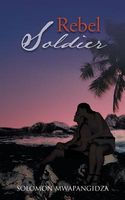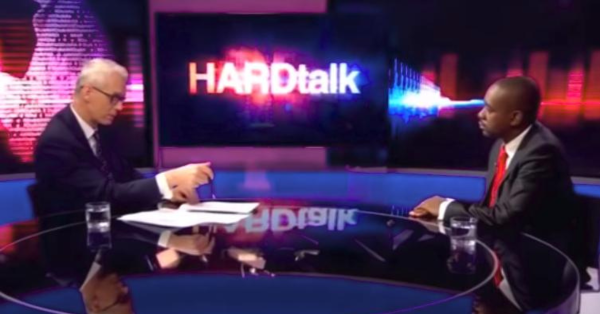 |
| Mwapangidza’s debut novel |
Book: Rebel Soldier
Author: Solomon Mwapangidza
Publisher: Author House (2013)
Zimbabwean critics have been in troubleshooting mode for too long to acknowledge the potency of emerging voices. Our preoccupation with pessimism and hindsight has unduly diverted attention from young writers who are injecting fresh life into local literature.
We need to move over to the sunny side of the sector where new writers are foiling the odds to season the domestic canon with a trendy flavour. Few newcomers, notably NoViolet Bulawayo and Brian Chikwava, have hogged international acclaim, while others are still to earn their efforts’ worth.
On the home front, NAMA last month cherry-picked Solomon Mwapangidza, Tinotenda Mpofu and Tsungi Chiwara as some of the most exciting recent finds, with Mwapangidza’s stellar debut, “Rebel Soldier,” bagging the Outstanding Creative First Published Work accolade.
This coming-of-age cluster questions the fatalistic estimate of Zimbabwean literature as a tradition past its prime and tags Carl Sandburg’s ballad “Strong Men Keep Coming On” as a fitting appraisal of the arena.
Emerging writers, unlike their predecessors, have high stakes to reckon with, not least the commercialisation of the book sector which has narrowed down publishers’ scope of operation to academic texts and solicited anthologies.
Newcomers dabbling with full-length projects have resorted to self-publishing, for the most part, an alternative which often waters down editorial rigour besides being strewn with marketing constrains.
Mwapangidza does not cast himself in an ambitious role but affirms that new writers are keeping the arena posted with signs of life, notwithstanding the individual costs of breaking into print.
“This effort and many others like it will at least give that much needed ray of hope. But the biggest challenge is how to sustain that effort in a country that offers little support to emerging writers,” Mwapangidza complains.
“When the older generation started publishing, it was relatively easy to get published in Zimbabwe partly because the reading culture was still very much alive. Not so now.
“Today publishers will not even look at your work unless it has been approved by ZIMSEC, which is nonsense because ZIMSEC only considers published work. That is why emerging writers are resorting to foreign publishers. It is much easier to get published outside but far more expensive.
“So, the conditions in our country at the moment will make it very difficult to have many prolific writers as in the Mungoshi, Chinodya, Hove generation,” says Mwapangidza.
Even with lukewarm midwifery upending the sector, the newcomers are bent to deliver and Mwapangidza’s novel is a notable exhibit.
“Rebel Soldier” is framed around the protagonist Lizzy Chiwara’s struggle for self-actualisation against a setting of patriarchal oppression. The heroine is riven in a dilemma between her feminist resolve never to marry and her emotional needs which draw her to a handsome and accomplished young man Alex Dubuza.
Mwapangidza laces into a riveting narrative individual quests for freedom which are supplanted for the broader political struggle. The novel zeroes down on struggles with the struggle, where women’s yearning for emancipation is hushed, with atrocities are glossed over and swept under the rug in the top-down propagation of ‘higher imperatives.’
It short-circuits issues that are downplayed as negligible to preserve the sanctity of institutions, cultures and ideologies – a pertinent undertaking, considering the enormity of crimes dominant classes worldwide get away with, ostensibly because exposure and confrontation is deemed a dent to institutional reputation.
The Vatican has, for example, riled observers for accommodating child molestation and sexual perversion by priests. A lame excuse that exposing the pedophilic bugs to public glare will deal a blow to the reputation of the church. Likewise, superpowers have often flout their own rules to destabilise regions and butcher civilians in the interest of democracy.
When history is certified, the grand narrative is scoured of subplots. The stories of the subjugated are nipped off for a ‘single story’ extolling the rich and the powerful as infallible benefactors, while minorities are denied a stake in the discourse.
Chenjerai Hove comes down on the imbalance in “Ancestors” where he insists that “to omit is to lie.” In Shimmer Chinodya’s short story “Martha’s Hero” a wayward guerilla Comrade Ponda kills villagers injudiciously and rapes women including the school-going protagonist.
The object of revolution becomes an Orwellian pigsty where a common quest for freedom is skewed to benefit the well-placed while for the rest, only customs and costumes change, as Mungoshi said, in a general drama of subjugation.
The novel levels an indictment against unquestioned rites such as arbitrary marriages where women were given away to appease avenging spirits or secure convenient alliances, whereas their own emotional choices are discounted.
Lizzy’s namesake, Aunt Rizi, dies single, isolated and dejected because her family rejects and murders her fiancé while her niece and Lizzy’s twin, Lucy, commits suicide to avert a forced marriage in which she had been objectified into a scapegoat to pacify ‘ngozi.’
The heroine’s resolve to fight male oppression impels her to two resolutions: to join the armed struggle and never to marry. When she is about to be handed over to a man during a public ceremony she delivers a rebellious homily to the awe of fellow villagers. Argues she: “As far as I know, the woman you want to use to settle this matter has not been consulted. If this woman is old enough to get married, surely she should old enough to be consulted.”
As victory against the “Smoke Regime” is in sight, Lizzy gets pregnant by Comrade Robson Changu who forces himself on her. Ironically, Changu is appointed Minister of Justice, Reconciliation and Women Empowerment in the post-colonial government, a portfolio which entails setting up a Truth and Reconciliation Commission to investigate crimes committed during the liberation.
Shortly before Independence, Lizzy joins Women of Zimbabwe Resist where she becomes a hardwired feminist harbouring brazen hate and vengeance for all men. The indiscriminate disparagement of men by the group leaves the reader with the impression that feminism which foments universal enmity between men and women is a socially attritional “black to white another black.”
After a successive tragedies, Lizzy comes to terms with the fixity of her love for the ‘crushworthy’ Alex whom she had rejected on several encounters. “Do you realize that every being beneath the sun is in a constant quest for happiness? Whatever game they play, whatever work they do, whether or not they realise it, their ultimate goal is happiness.
“I have always had this dreadful imagination of being the major character in some book entitled ‘She Lived a Lie’ where the protagonist leads a sort of paradoxical life; she seeks happiness by attempting to escape from what she craves for,” Lizzy admits.
Mwapangidza’s novel, unlike many local self-published projects, is remarkable for its commitment to quality. The narrative is flawless and meticulously edited, one area young writers need to pay attention to before rushing to press.


